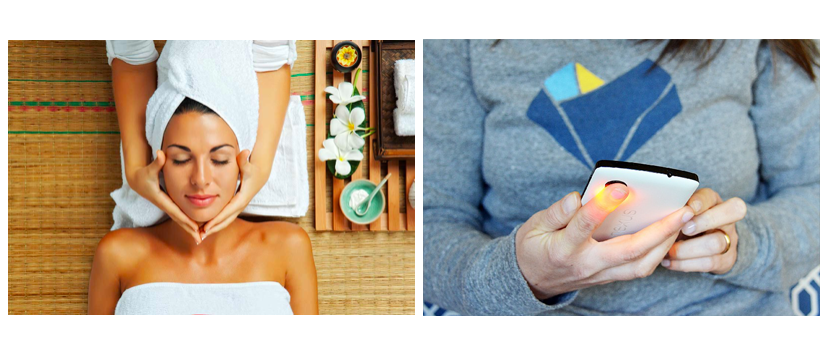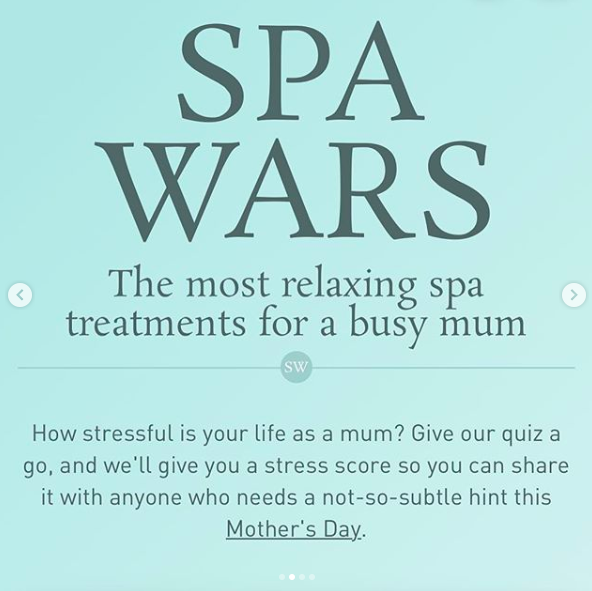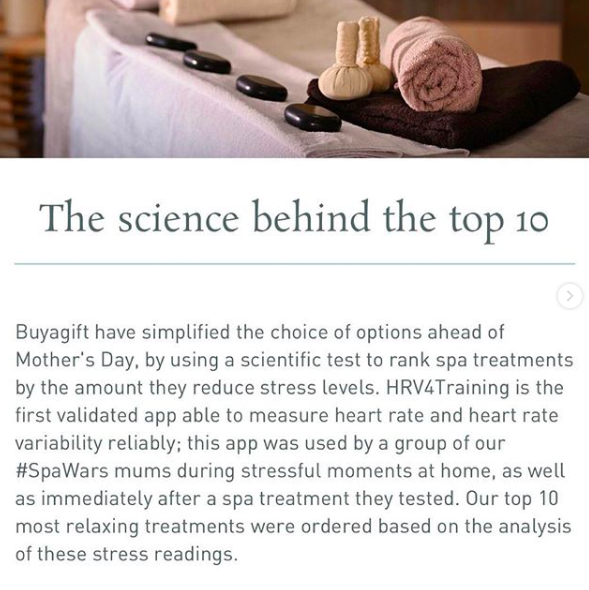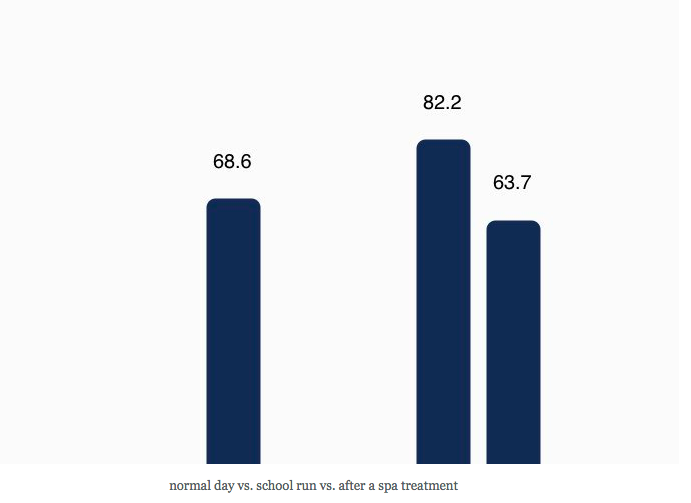|
Today's blog post is about a fun project I had the pleasure to take part in thanks to Dan Plews and Rob Arkell. The project was ran by buyagift, and the idea was to determine which spa treatment is more relaxing, so that you can gift the most relaxing treatment for Mother's Day. Obviously, we used HRV4Training to assess physiological stress. HRV4Training is the first and only validated app that can measure heart rate variability (HRV) without requiring anything more than your phone, and hence it provides an easy way to measure stress non-invasively. While we normally work with athletes, our body responds to training and lifestyle stressors in the same way (which is why we cannot look at just one or the other), and therefore by using HRV4Training we could capture stress (and relaxation) resulting from a specific treatment, in an objective way. What did we do?Ten UK mummy bloggers were each given a spa treatment and asked to measure their stress levels – or Heart Rate Variability (HRV) – once during the most stressful moment of their day and again after their spa treatment. Buyagift then compared the different readings to determine the most improved stress rates and unveil which spa treatments truly reduce stress levels the most. The experiment setup is quite similar to what we would do in a pre / post experiment in clinical settings, trying to figure out the impact of a particular stressor or relaxation exercise (e.g. meditation, or in our case, a spa treatment) - what we also call acute HRV changes. Dr Daniel Plews, Physiologist and Buyagift’s stress experiment consultant comments: “The survey reveals that mums need to take more time to relax as too little sleep and too much stress can have serious long-term physical and mental health implications. As 4 in 5 families don’t know which treatment to get their mother, this experiment was designed to reveal which treatments help mums de-stress the most by analysing mums’ stress levels. We did this by measuring HRV, which is an accurate, non-invasive measurement of the variation between consecutive heart beats intervals. It reveals signs of physiological stress, as HRV is typically higher (more variation between heart beats) during relaxing activities and decreases (less variation between heart beats) during stressful activities.”
|
Marco ALtiniFounder of HRV4Training, Advisor @Oura , Guest Lecturer @VUamsterdam , Editor @ieeepervasive. PhD Data Science, 2x MSc: Sport Science, Computer Science Engineering. Runner Archives
May 2023
|




 RSS Feed
RSS Feed